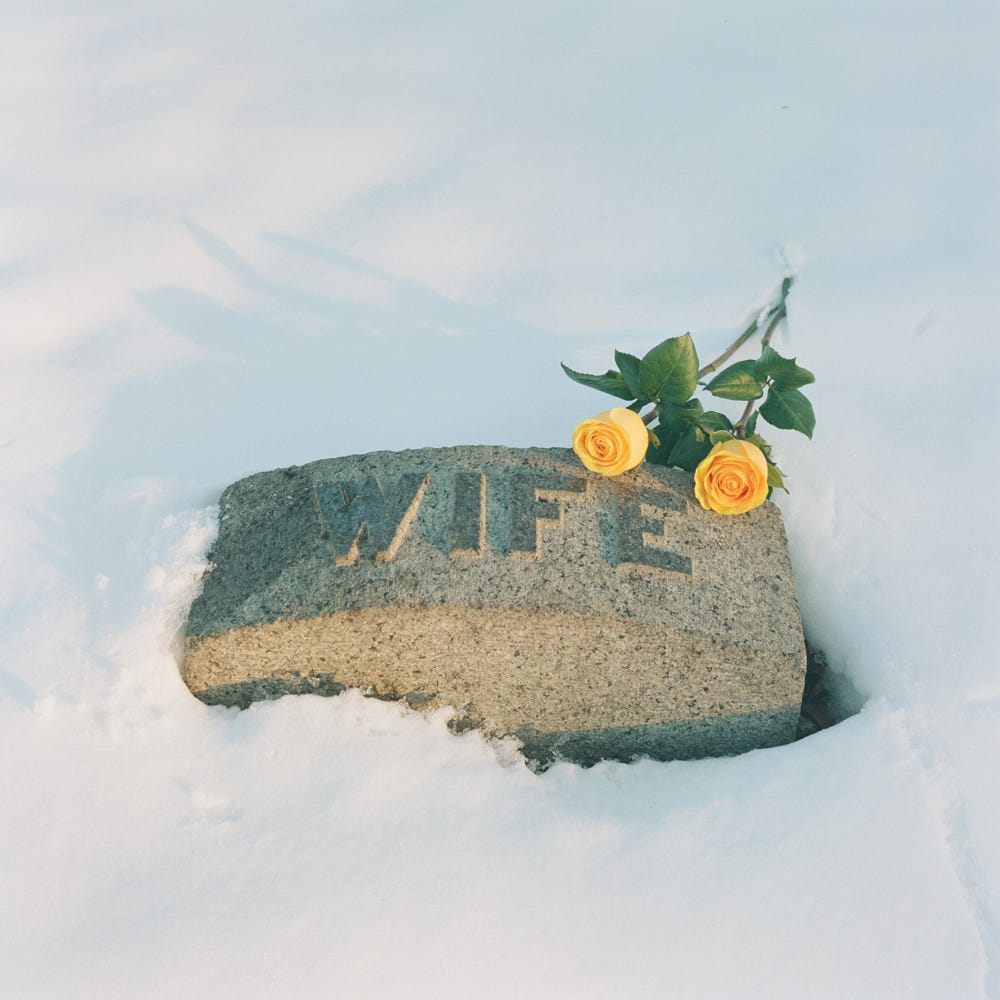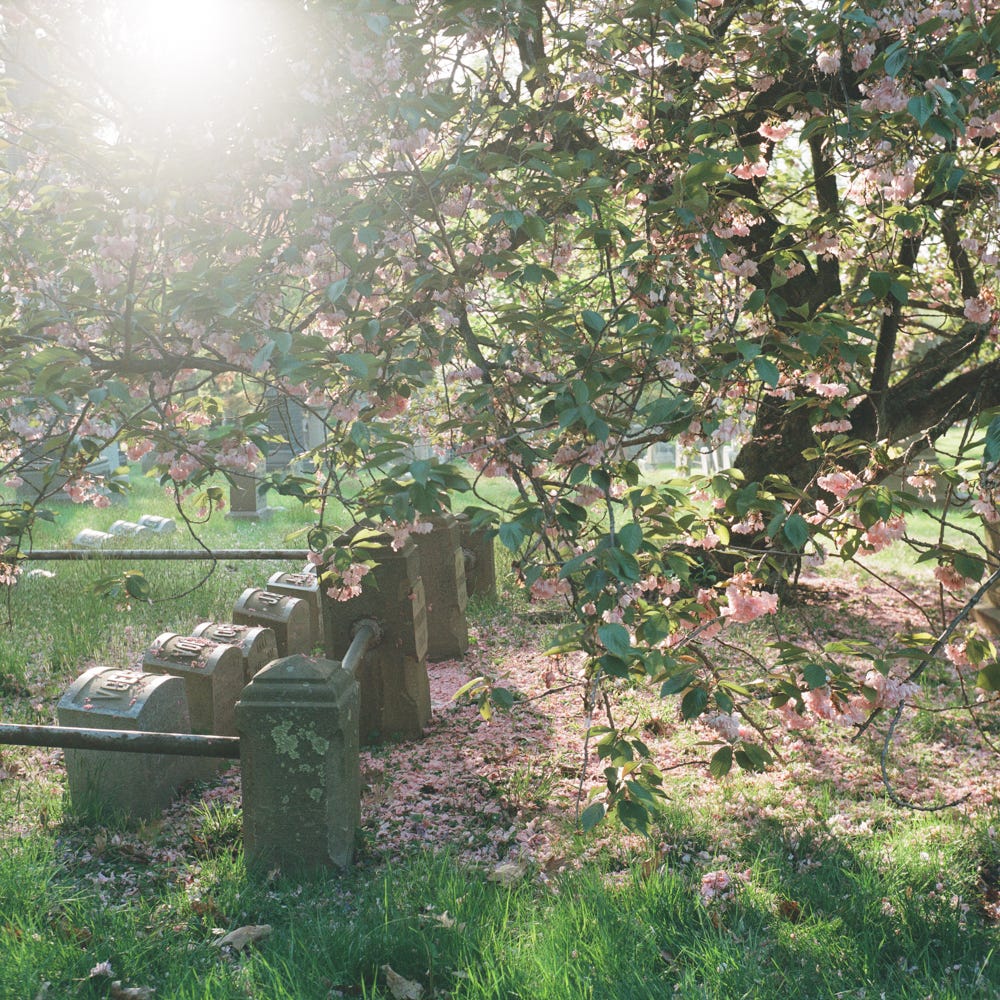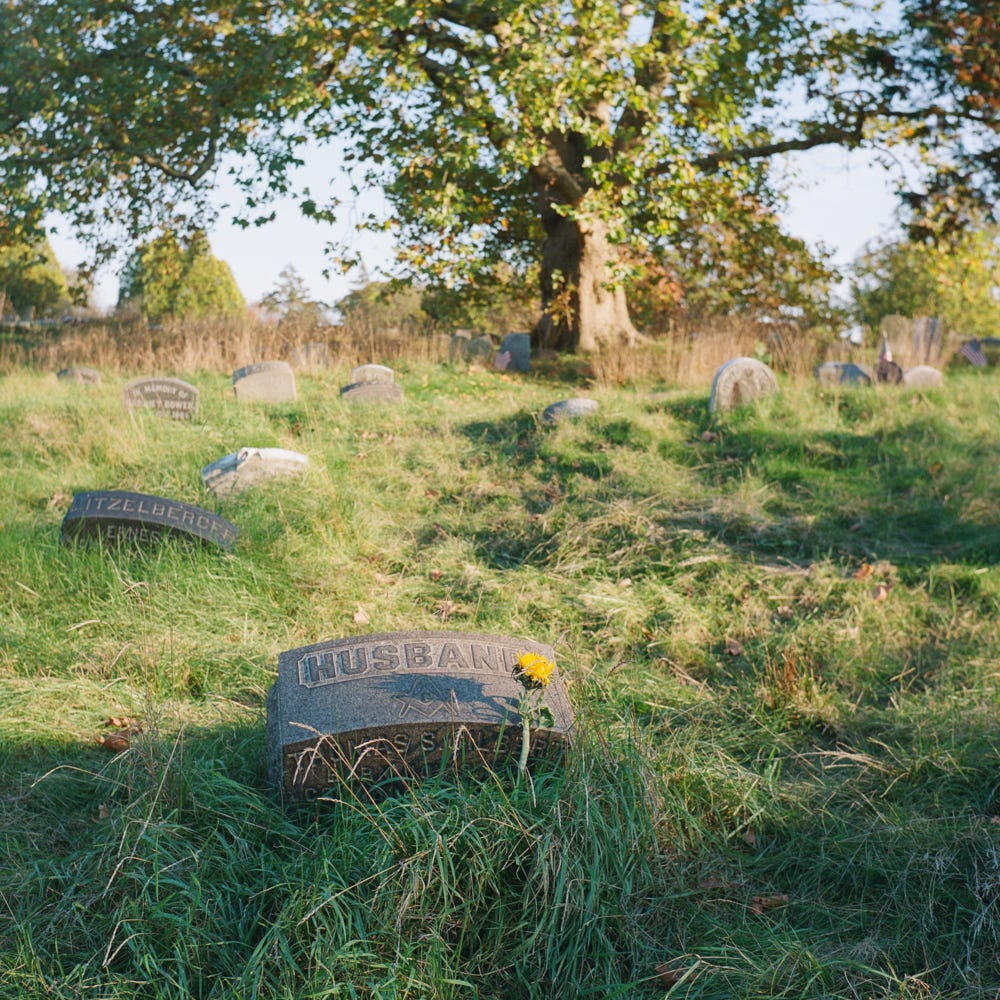A True Life Built is a living photo essay on starting over and building a truer life. It’s for anyone, at any age, who is finding the courage to begin again. Subscribe for free weekly posts.
Picture an excruciating Zoom meeting: cameras on, an overbearing moderator, an inscrutable agenda, and a coworker who gets under your skin. You wrestle your face into neutral expression to mask how you’re dying inside. Now imagine that the moderator is a judge, the agenda is your whole life savings, the coworker is the person you once loved most—and you’re paying $8 a minute for the privilege. That’s what divorce court during Covid was like. It reminded me of Sartre’s No Exit, a virtual room where hell is other people.
In October 2021, I logged off from that special hell for the last time, with the judge’s blessing to go our separate ways. I thought then, as my friends hugged me and popped champagne, that the hardest part was over. I had managed the long process of leaving by pouring myself into action: researching, preparing, managing. But once the need for action ended, my armor of competence cracked and all the feelings I’d been holding back finally broke through.
I felt like an egg that had rolled off the kitchen counter and hit the floor with a wet thud, broken shards of shell and feelings oozing everywhere. Day after day, I laid in a puddle on the floor, Adele on repeat, and cried all the tears that went unshed in my marriage. My heart broke again and again for the things that might have been: the child I never had, the garden I left, the futility of trying to turn the marriage I had into one I wanted.
All throughout that first winter, I walked in Greenwood Cemetery, heartsick. I found myself drawn to a tombstone marked “Wife,” silent in the snow. I felt a kinship to this woman who had been reduced in death to a single role. Who else was she besides a wife? Who was I? In the endless tending to my husband’s needs, I had lost sight of my own.
One frozen afternoon, on impulse, I bought yellow roses at a nearby bodega and laid them on her grave—for her, for me, for any woman who has made themselves small. I wept as the pale light winter drained from the sky, for the woman I once was and what it had cost.
If you had told me then that I would look back on this period with gratitude, I would have shoved you into a snowbank. Yet as the snow gave way to buds and then to blossoms, it gradually dawned on me that I didn’t want my old shell back, that I didn’t need to keep my feelings walled away.
I had always seen strong emotions as the enemy, something to be avoided at all costs. When I felt angry or anxious or alone, I’d tamp the feelings down with distraction or wine, telling myself I was fine. When people I loved were hurting, I tried to fix them too. I said, “At least it’s not X” and “Why don’t you do Y.” I was trying to hurry away their hurt, as if their hurt were shameful.
But in my darkest days, I was moved by friends who said, “This hurts like hell, and I’m sorry,” without trying to make it better. They sent cards and flowers and chocolate. They took me on hikes and made me crepes and let me be mopey and weepy because that’s what I needed for a time. I learned how healing it is to honor sorrow and to sit with someone in their pain.
What if the point isn’t to feel better, but simply to feel? What if pain is just as necessary as joy? For decades, I’d allowed myself only a narrow range of emotions. But the shadow side of love is always loss; you cannot love deeply without risking pain that shatters you to your core. When I finally shattered, it opened me up to the full richness of our shared human experience.
Pain was my gateway to empathy, and empathy to connection. I, too, began to send cards and flowers, to speak openly of my struggles as well as my joys. As I gradually opened up, I became someone that other people could open up to, and my relationships deepened.
“I feel like I’m getting to know you for the first time,” said an old friend.
“Thank you for sharing and for being vulnerable with me,” said a colleague.
“You’ve taught me that it’s OK to show feelings,” said another.
It turns out that in all these years I’d walled off pain, I’d also walled off vulnerability, that critical ingredient of intimacy. In order to build the connections I craved, I first had to let myself be seen.
In October 2022, a year after my final court call, I was exploring a new part of Greenwood, a wild meadow with ancient oaks and ancient graves. Greenwood is still the place I walk to untangle my feelings, when I need to mope and weep. But now it is also a place for glorious wildflowers and picnics with friends. I walk to bask in the light on the leaves and the chatter of the parrots, to appreciate the small tokens on graves that say loved ones are gone but not forgotten. My joy and pain coexist and mingle freely.
As I wandered the rambling meadow paths, I noticed a grave that said “Husband.” Someone had left a single sunflower, which glowed gold in the late-afternoon sun. I stood silently in the long grass, stunned by the echo of the yellow roses I’d left in the snow. Sunflowers are the mascot of my rebirth, my summer delight. How fitting that one should mark my first year of freedom.
I marveled at the scene suspended in honeyed light, improbable and perfect. It felt like a gift from the universe that said: Look how far you have travelled since your early days of heartbreak. Look at all that has grown from the seeds of your grief. Look how lush your life is now, and how alive.
One of the unexpected joys of starting over has been hearing from others on similar journeys. If something resonates with you, I’d love for you to leave a comment, drop me an email or share a post with a friend!
Liz is a writer and photographer based in Brooklyn. She’s spent her career finding the right words for others and now she’s finding her own.







You sharing your work and candor is the gift to us ❤️
This resonates so deeply:
“When people I loved were hurting, I tried to fix them too. I said, ‘At least it’s not X’ and ‘Why don’t you do Y.’ I was trying to hurry away their hurt, as if their hurt were shameful. But in my darkest days, I was moved by friends who said, ‘This hurts like hell, and I’m sorry,’ without trying to make it better.”
People in the infertility groups I’m part of often say how painful it is when others try to fix or diminish our pain; how desperately we just need acknowledgment and validation of our grief. It’s such a human reflex to want to make the hurt stop, but you’re right; we need to be allowed to feel everything in order to heal and grow. ❤️